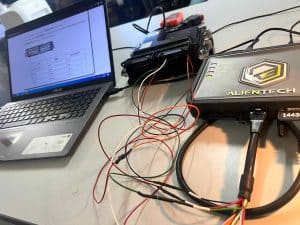EGR Delete vs EGR Clean – Which One’s Right for Your Vehicle&
EGR Delete vs EGR Clean
If your vehicle is losing power, surging, blowing smoke, or struggling under load while towing, the culprit is often staring you in the face: your Exhaust Gas Recirculation (EGR) system. Designed for emissions control, the EGR system recirculates exhaust gas back into your engine’s intake. That reduces combustion temperatures and NOx emissions. But with time—especially under Australia’s hot, dusty, high-load driving conditions—this system clogs, gums up your intake, and wreaks havoc on engine performance.
So the question becomes: Do you clean EGR, or do you delete EGR altogether? Here’s the full breakdown.
How the EGR System Affects Your Vehicle
Most common rail diesels—think MMC Triton, Toyota HiLux, Isuzu D-Max, Ford Ranger, Navara, and BT-50—are fitted with EGR systems prone to buildup. Carbon, oil vapour, and soot combine to coat the intake manifold and EGR valve, forming thick sludge that restricts airflow. When this happens, your engine breathes dirty, hot air, leading to:
Poor throttle response
Increased fuel consumption
Black smoke under load
Surging, hesitation, or limp mode
Turbo and DPF failure over time
If you tow, carry tools, or go off-road regularly, your EGR system is likely degrading performance long before a warning light appears.
Option 1: EGR Clean
An EGR clean involves removing the EGR valve and intake manifold, soaking or blasting the components with solvents, and clearing carbon buildup. It’s a short-term solution that restores flow and prevents sensors from tripping. Or replace it with a new one.
Pros:
Legal and emissions-compliant
Effective for restoring factory performance
Lower cost upfront (generally $300–$600 depending on severity)
Cons:
Doesn’t fix the underlying design flaw—it’ll clog again
You’re still feeding your engine exhaust gases
It can trigger issues later with DPF regeneration or turbo backpressure
Ideal for: Fleet vehicles still under warranty, owners who want to stay 100% compliant, or those prepping for something else yet hard to understand.
Option 2: EGR Delete
An EGR delete physically or electronically disables the EGR valve, preventing it from opening and stopping exhaust gas from entering the intake. In most modern utes, this is done via ECU remapping or blanking plates with supporting tuning.
Pros:
Stops carbon buildup permanently.

ECU Tune on the bench
Reduces intake temperatures, improving combustion efficiency.
Helps extend the turbo and DPF lifespan.
It can improve fuel economy (especially towing).
More stable boost control under load.
Cons:
Not legal for on-road use under ADR guidelines.
It must be paired with a proper ECU tune or CEL delete.
Can void warranty if detected by dealer scans, which means most QLD vehicle owners would do an EGR delete once the warranty expires.
Ideal for: Towing rigs, touring builds, off-roaders, or tradies who want long-term reliability, especially when paired with a catch can and tuned ECU.
Fuel Economy Gains: Myth or Real?
Here’s where it gets interesting. Deleting your EGR won’t magically save litres at the bowser…But by reducing soot and intake temps, combustion becomes more stable, which can improve fuel economy. You potentially, can save 5–10% of fuel, especially when towing. We’ve seen heavy utes running GVM upgrades drop from 15.5L/100km down to 13.8L/100km after a proper EGR + tune combo.
Legal Considerations: Quick Reality Check
EGR deletes are not road-legal under ADR emissions standards. That said, off-road-use-only tunes and deletes are common, especially in rural fleets, farm utes, and off-road builds. At Brisbane Tuning & Turbo, we offer both legal EGR cleaning services and off-road EGR delete and tuning solutions. We won’t suggest deletes for daily-driven, city-registered vehicles. We will help you make an informed decision based on your actual use case. Yet all of that said, if your vehicle goes into limp mode on the middle of the motorway … Well, you need to make that decision yourself self EGR Delete vs EGR Clean.
What We Recommend at Brisbane Tuning & Turbo out of EGR Delete vs EGR Clean
If your EGR system is lightly clogged or your vehicle is still under warranty, a full clean with an optional intake clean is a smart move.
If you’re a towing-heavy, off-road, or out-of-warranty owner sick of sluggish response and want long-term reliability? A full EGR delete with supporting ECU tune is the way to go.
Either way, your engine deserves to breathe fresh air, not soot and fumes.
Need Help Choosing?
At Brisbane Tuning & Turbo, we offer:
Legal EGR cleaning.
Off-road EGR deletes + custom ECU tunes.
Diagnostics and smoke testing to confirm EGR flow.
Catch can + DPF combo packages.
Let’s check how clogged your system is—book an EGR inspection or call us for free advice. Whether you clean it or bin it, we’ll help your vehicle run cleaner, stronger, and longer.
Call us now 0732767969